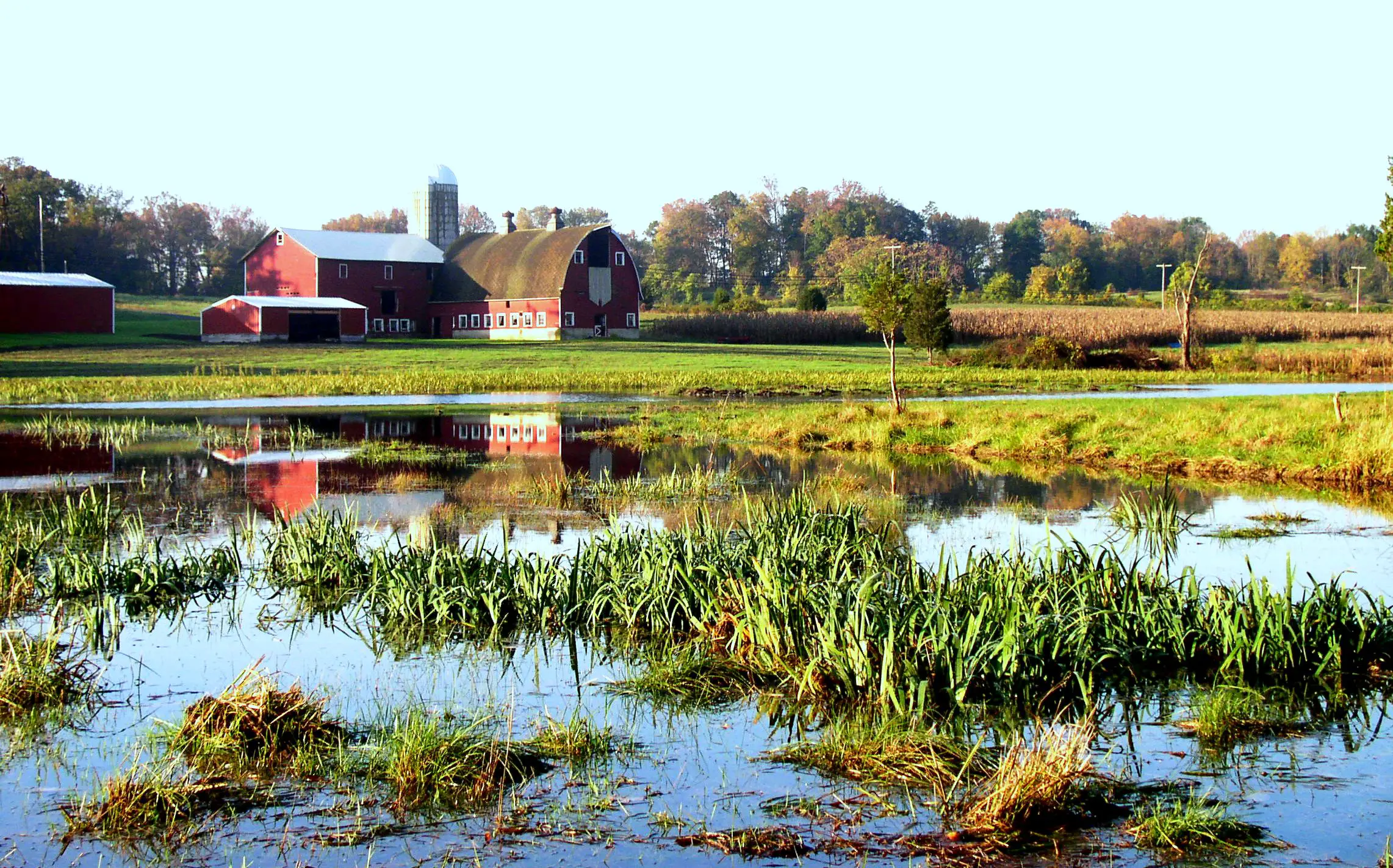Should I Buy a Property With Wetlands?
Wetlands are areas of land saturated with water, either permanently or seasonally.
They play an essential role in the ecosystem as they provide habitat for wildlife, filter pollutants, and prevent flooding.
When buying a property, wetlands can be a double-edged sword.
On the one hand, they offer many benefits, but on the other hand, they come with restrictions and maintenance costs.
This article will discuss the pros and cons of buying a property with wetlands and provide the information you need to make an informed decision.
Pros of buying a property with wetlands
Tax benefits
Buying a property with wetlands can offer significant tax benefits.
The government offers tax incentives to landowners who preserve wetlands on their property. These incentives can include tax deductions, credits, and exemptions.
In some cases, the government may even offer to buy the development rights to the wetlands, which can provide a substantial source of income.
Natural beauty
Wetlands are breathtakingly beautiful and offer a unique landscape that cannot be found elsewhere.
Owning a property with wetlands can allow you to enjoy this natural beauty from the comfort of your home.
You can use the wetlands for recreational activities such as birdwatching, hiking, and fishing.
Biodiversity
Wetlands are home to a wide variety of plant and animal species. Owning a property with wetlands can allow you to experience this biodiversity firsthand.
Wetlands are also essential breeding and nesting grounds for many bird species, making them a popular destination for birdwatchers.
Environmental protection
Wetlands are critical to the environment as they help filter pollutants and prevent flooding. You can contribute to preserving these vital ecosystems by owning a property with swamplands.
You can also take steps to protect the wetlands on your property by implementing best management practices, such as reducing runoff and controlling invasive species.
Where To Buy Investment Property 2023?
Cons of buying a property with wetlands
Restrictions on use
Owning a property with wetlands comes with many restrictions on use.
Wetlands are protected by federal, state, and local laws, and you may need to obtain permits and approvals before making any changes to the wetlands.
You may also need to comply with regulations such as building setbacks, buffer zones, and land-use restrictions.
Maintenance costs
Wetlands require regular maintenance to keep them healthy. This can include mowing, invasive species control, and water level management.
The cost of maintaining wetlands can be significant, and you may need to hire professionals to perform these tasks.
Mosquitoes and other pests
Wetlands can be a breeding ground for mosquitoes and other problems.
This can make it difficult to enjoy the natural beauty of the wetlands without being constantly bothered by insects.
You need to take steps to control the mosquito population on your property, such as using insect repellent or installing mosquito traps.
Flooding risk
Wetlands are designed to absorb water and prevent flooding but can also increase the risk of flooding on your property.
If the wetlands on your property become over-saturated, they can cause water to overflow onto your land.
This can cause damage to your property and increase the risk of water damage.
How to determine if the property has wetlands
Before buying a property, it is essential to determine if it has wetlands.
You can consult with local authorities such as the Department of Environmental Protection to determine if the property has wetlands.
You can also hire a wetland specialist to perform a wetland delineation, identifying the boundaries of wetlands on a property.
A wetland specialist can provide a detailed report identifying the wetlands’ type, size, and location on the property.
FAQs
What is the difference between a swamp and a wetland?
A swamp is a type of wetland dominated by trees and shrubs, while wetlands are areas of land saturated with water either permanently or seasonally.
Swamps are typically found in forested areas, while wetlands can be found in various landscapes.
Can I build on a property with wetlands?
Building on a property with wetlands is possible, but it comes with many restrictions and regulations.
You may need to obtain permits and approvals from federal, state, and local authorities before making any changes to the wetlands.
You may also need to comply with regulations such as building setbacks, buffer zones, and land-use restrictions.
How do wetlands impact property value?
The impact of wetlands on property value depends on many factors, such as the wetlands’ location, size, type, and condition.
In some cases, wetlands can increase property value by providing natural beauty, recreational opportunities, and environmental benefits.
In other cases, wetlands can decrease property value by limiting the use of the property, increasing maintenance costs, and increasing the risk of flooding.
What are the regulations for owning a property with wetlands?
Wetlands are protected by federal, state, and local laws, and there are many regulations that landowners must follow when owning a property with wetlands.
These regulations include obtaining permits and approvals, complying with buffer zones and building setbacks, and implementing best management practices to protect the wetlands.
Can I fill in the wetlands on my property?
Filling wetlands on your property is generally not allowed without obtaining permits and approvals from federal, state, and local authorities.
Wetlands are critical to the environment, and filling them in can have serious environmental consequences, such as increased flooding, decreased water quality, and loss of wildlife habitat.
Conclusion
Buying a property with wetlands can offer many benefits, such as tax incentives, natural beauty, biodiversity, and environmental protection.
It also comes with restrictions on use, maintenance costs, pests, and flooding risks. It is essential to weigh the pros and cons carefully before deciding.
Consulting with local authorities or hiring a wetland specialist can help you determine if the property has wetlands and the restrictions and costs associated with owning a wetland property.













